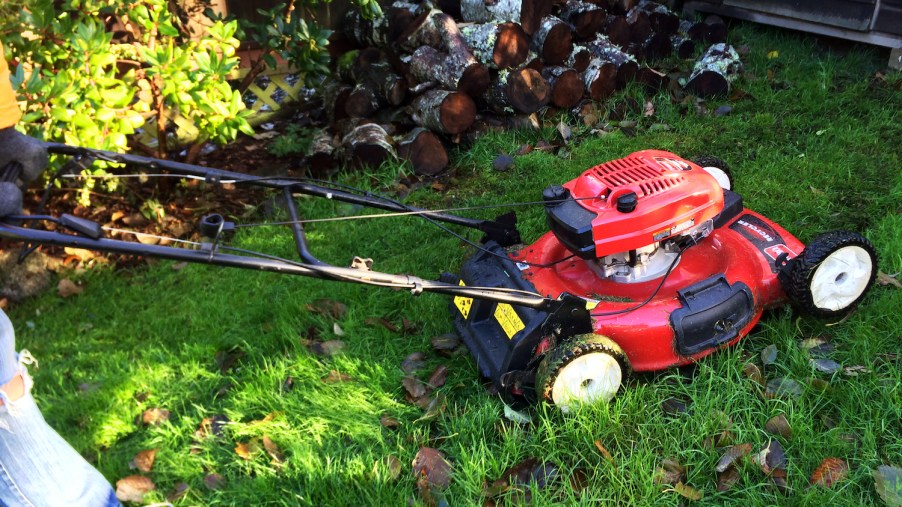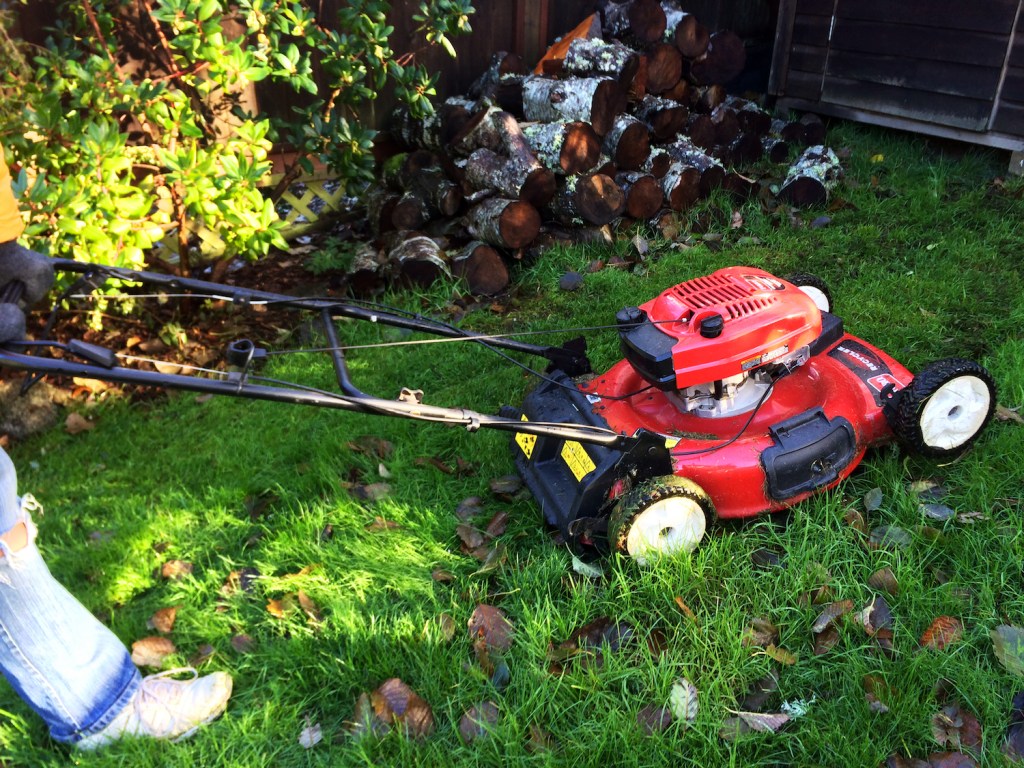
Bob Vila: Why Mulching Leaves with a Lawn Mower Is Better Than Raking Them
The first day of fall is just around the corner. With that season change comes a few annual yard maintenance tasks. For many renters and homeowners, one of those yearly tasks includes clearing their yard of leaves. Typically, that task is done with a rake. But, if we’re honest, raking leaves is back-breaking work. The good news is that, according to Bob Vila, mulching leaves with a lawn mower is much better than raking them and can even improve the health of your lawn.
Is it better to mulch leaves or bag them?
When it comes to clearing your yard of fallen leaves, you’ve got a couple of options. First, you could grab a rake from your garage and start raking those leaves into a pile. Once you’ve cleared your yard of leaves and have raked together a decently sized pile, you can throw those leaves in a bag and call it a day.
Your second option includes mulching leaves with a lawn mower. In fact, when it comes to the do’s and don’ts of raking leaves, Bob Vila says that mulching leaves with a lawn mower can improve the overall health of your lawn. Additionally, mulching leaves with a lawn mower can save you time and effort. So if you’d like to skip the rake? You can do so with confidence, knowing that it is better to mulch leaves than bag them.
Mulching leaves is good for the environment too

Mulching leaves won’t just improve the health of your lawn. It’s also good for the environment. In fact, mulching leaves with a lawn mower reduces landfill space, Fairway Green Professional Lawn Service reports. It also prevents leaves from clogging sewers, which can cause algae blooms in the water.
“Fallen leaves offer a double benefit,” added National Wildlife Federation Naturalist David Mizejewski. “Leaves form a natural mulch that helps suppress weeds and fertilizes the soil as it breaks down. Why spend money on mulch and fertilizer when you can make your own?”
What is the best way to mulch leaves with a lawn mower?

Mulching leaves is better than bagging them. It can not only improve the health of your lawn but is also good for the environment. At this point, you’re probably asking, what’s the best way to mulch leaves with a lawn mower? Well, Bob Vila has got you covered.
1. Leave a thin layer of leaves on your lawn. Regardless of what type of lawn mower you own, chances are it’s capable of mulching leaves. Once you have your lawn mower out, Bob Vila suggests adjusting the height of it. Bob Vila added that the best lawn mower height for mulching leaves would be your mower’s highest setting. Once your mower is at its highest checking, confirm a thin layer of leaves on your lawn. You can mulch up to 6 inches of leaves at once.
2. Mulch fallen leaves into dime sizes. Once the leaves are spread in a thin layer across your yard, it’s time to mulch them. Simply mow the lawn, just as you would on a typical day. However, be sure to make multiple passes until the fallen leaves are about the size of a dime.
3. Mulch leaves every week. Depending on how many fallen leaves you have in your yard, Bob Vila recommends mulching leaves every week. Doing so will not only save you time but will further improve the health of your lawn.
How to mulch leaves without a lawn mower
Perhaps you don’t own a lawn mower. The good news is that there are alternatives to lawn mowers. In fact, according to Bob Vila, there are several additional options. Take, for example, a stand-alone mulcher. This device is built specifically for mulching and looks and functions similarly to a wood chipper. You might also consider using a weed whacker to mulch leaves.
Raking leaves is back-breaking work; mulch them with a lawn mower instead
No one wants to spend hours on end doing yard maintenance. That’s especially true when it comes to raking leaves. Fortunately, there are several benefits to mulching leaves with a lawn mower instead. It will not only help improve the health of your lawn but is also good for the environment. What’s not to like about that?



